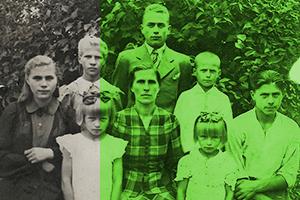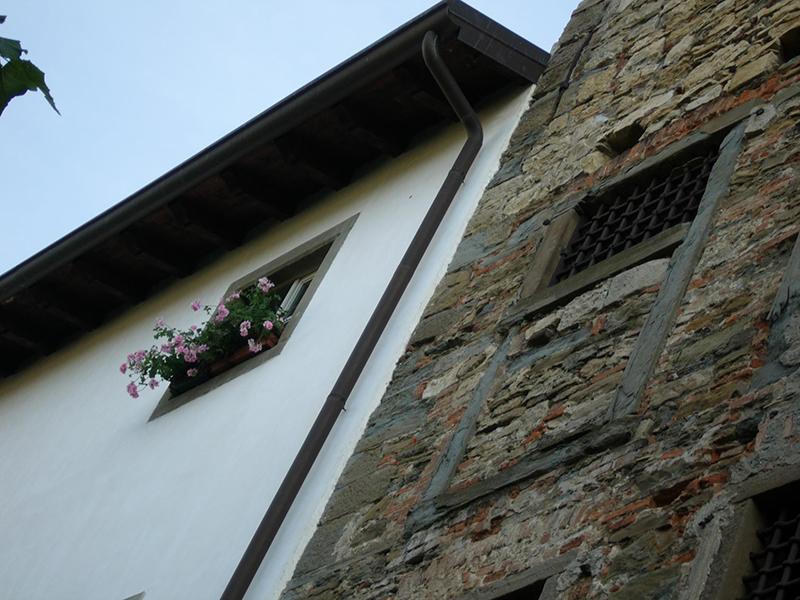 Belarus
BelarusLife Under the Table
On the eve of the unknown the Belarusian writer is playing with the past
20 December 2023 © Sabina Brilo
© Sabina Brilo
Our Belarus section is edited by journalist Sabina Brilo. We offer to our readers his opening column.
Беларуская English Русский
It has been sixteen months since my husband and I left Minsk.
In July 2021, we flew to Georgia: one of the few destinations available at that time. A week earlier, activists from the Viasna human rights center – including 2021 Nobel Peace Prize winner Ales Bialiatski – were arrested in Minsk. A lot of our friends and colleagues had already been imprisoned: journalists from the BelaPAN news agency and the Belsat TV channel, the editorial board of TUT.BY, which is the largest and most popular independent internet portal in the country. The state-run Belarusian TV kept feeding the narrative about the “collaborators” and “hereditary Nazis”, about the plans of the collective West to occupy Belarus by creating “terrorist cells” that are supposed to overthrow the current regime… All this nonsense was a sign that the madness was progressing and repression was gaining momentum. Lukashenko worked hard to keep his promise to "find and punish everyone" who had participated in the protests of 2020.
Life became scary for us – it was not quite clear how to live at all. After you survived the visit of uninvited guests in uniform early in the morning, your daily life will no longer be the same. You are not a criminal nor a member of some secret underground organization. You are not hiding anything nor participating in a conspiracy plot. You didn't break any laws. Still, every night before going to bed you are putting all your papers in order, and every morning you get up unusually early to make sure you have enough time to take a shower, to brush your teeth, to have your breakfast, and to check, one more time, your go-bag with hygiene and other personal items – in case they come for you today. That was our daily routine. In the evenings, I was reading Hagakure samurai ethics – it helped me to fall asleep.
The feeling of constant insecurity resulted in a phobia: I was afraid that one day I would come home (for example, from the supermarket) only to find my front door open. And on the floor, in the hallway, my cat would lie with its belly open. This picture haunted me for several months and I couldn’t help it.
We were not planning to leave and we never discussed it. But in mid-July, when another wave of our friends’ arrests arrived, we flew to Georgia. We didn’t even admit to ourselves that we were leaving home for a long time. We said goodbye to our relatives as if we were going on vacation – and, actually, we tried to convince ourselves that it was true.
It's been two years since we moved away from home. We are living in Lithuania now. Long time ago, our relatives took everything perishable from our apartment: food, tea and coffee, medicines, cosmetics. Our books, paintings, dishes, clothes and personal belongings are still there. After all, you never know where your genius loci resides, and so I don’t want to take anything from my abandoned home. I want this spirit to be on guard, hopefully it has enough strength to protect the place. The only thing I asked my friends to send me when the opportunity occurred was my favorite throw blanket. When I finally got it, I sat peering into it all day and trying to track down my cat’s hair. I miss her very much. We are less than two hundred kilometers from home, but it's scary to go there. Sometimes I think about going back – then I hear again that another friend is arrested in Minsk.
Last fall, a woman at a market in Vilnius asked me: "Are you Jewish?" “Well, you can put it like this,” I answered, as I arrived here carrying just one suitcase packed with my summer clothes.
Here again, we couldn’t figure out how to live. It’s like you want to wake up, but you can't. It was particularly difficult to explain it to people who had never experienced complete absence of civil rights and never lived under the risk of getting arrested without any guilt. They just didn’t understand why you were not able to resist the regime. “What do you mean they just grab you on the street? Why didn’t you call the police?!” – they looked genuinely surprised as they were listening to our stories.
And then it was February 2022. When Russia’s war against Ukraine began, someone wrote that the Belarusians are now like Jews and Nazis at the same time. Even those who had yesterday admired us for our resilience and sympathized with us, started to accuse us of supporting the aggressor. On February 26, Vladimir Zelensky addressed the Belarusians saying, “Today, all of you are called to the polls to vote in the referendum. It could have looked like an ordinary political process, but there certainly cannot be anything ordinary now anymore.” The head of the neighboring state called the coerced February referendum in Belarus “an ordinary political process”, although this referendum was initiated by the authorities and needed by no one but the authorities. I listened to it and I and couldn’t believe my ears. By that time, about thirty of my fellow journalists had been in prison, tens of thousands of people had gone through administrative arrests (and many of them through torture), about a thousand political prisoners had been behind bars. Lots of people kept fleeing the country like us, with their relatives and their property left behind. I could not believe that even the closest neighbor didn’t see and didn’t understand what was happening to us. How can you explain it to strangers then?
For many years, the Belarusian dragon fed on "domestic products". It grew fat and brazen from reckless impunity and overindulgence. “Bombs are flying from your territory,” we hear this phrase all the time. And this is true. Crime has been committed on our territory for many years, and now it has crossed the national border.
By mid-November 2022, there were 1,425 political prisoners in Belarus and their number is growing every day. The daily updates are on the website of the Viasna human rights center, which monitors the political persecution of Belarusians. Every single day there are new episodes of this enormous human tragedy. I don’t know how many Belarusians have already left the country over the past two years. Five hundred thousand? A million? Nobody counts. When the guns speak, the statistics is silent. But many of my fellows are still in Belarus and living in the “they can come for you in the morning” mode. When you are deprived of any opportunity for active resistance, you can suddenly turn into a samurai who is ready to "stand till the end." The end is not yet. But if you don’t believe that you’ll see it, how can you live?
I ask: how can I live?
He says: waiting for an easy day
I ask: how will I know it came?
He says: you won’t
I ask: what if it’s already passed?
He says: it’s already passed many times,
otherwise, you wouldn’t have found the strength to ask your questions.
(Minsk, 2015)
Translated from Russian by Kun
 Belarus
BelarusOn the eve of the unknown the Belarusian writer is playing with the past
20 December 2023 Armenia
ArmeniaRussia used the Karabakh conflict as a bargaining chip to advance its geopolitical interests
12 December 2023 Georgia
GeorgiaThe history of Georgian post-constructivism
11 December 2023 Moldova
MoldovaWhat is going on with the Moldovan Orthodox Church
4 December 2023 Georgia
GeorgiaGeorgian “political Orthodoxy” and Russia
28 November 2023 Belarus
BelarusCan Belarusians critisise Western policies?
22 November 2023 Moldova
MoldovaAbout the underestimated danger of division into “us” and “them”
20 November 2023 Armenia
ArmeniaThe Karabakh conflict instigated multi-stage forced resettlement of Armenians
16 November 2023 Armenia
Armeniaand you said: there is no history, there are histories
6 November 2023 Georgia
Georgia‘Majoritarianism’ and ‘juridification’ in the service of clan governance
31 October 2023 Belarus
BelarusProminent political prisoners in Belarus have been completely cut off from any contact with the outside world for over six months
26 October 2023 Georgia
GeorgiaThe History of Cooperation and Resistance
20 October 2023